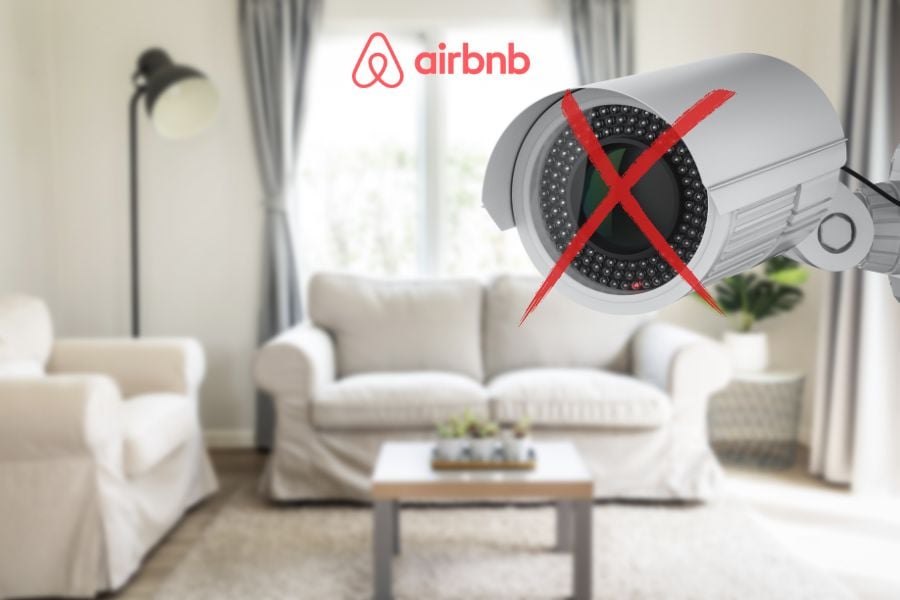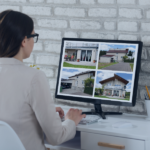Airbnb has taken a significant step towards safeguarding guest privacy. The company has recently unveiled a worldwide ban on indoor surveillance cameras across all its listings. This sweeping change signifies Airbnb’s unwavering commitment to prioritizing user safety and comfort while delicately balancing security measures and guest privacy. In this article, we explore the ramifications of this ban and its implications for both hosts and guests within the Airbnb community.
Property Management Security Measures
In the realm of property management within the vacation rental sector, security emerges as an imperative concern. Property managers bear the weighty responsibility of ensuring the physical safety and privacy of guests while maintaining the integrity of the property. This nuanced responsibility demands continuous assessment and proactive implementation of security protocols. Airbnb’s recent announcement of a comprehensive ban on indoor surveillance cameras across its global listings has sparked extensive discussion, highlighting the intricate interplay between security imperatives and the imperative to uphold guest privacy.
When we look at countries and what both hosts and guests think, it’s clear that the United States is leading the pack when it comes to hidden cameras in Airbnb rentals. In a survey done to Airbnb users with 2,000 guests, a big 58% said they were worried about finding hidden cameras in the places they stay. Los Angeles is especially known for this, boasting a whopping 772 Airbnbs with cameras, as far as we know.
Hosts give us some insight into where these cameras usually are. A good chunk, about 69.6%, say they put them outside, like at the front door, supposedly for safety reasons. But even with that, a notable 40% of hosts have had guests who caused damage to their rental properties. That shows there’s a real struggle in keeping places safe and in good shape.
On top of that, a huge 86% of guests feel like these security cameras invade their privacy, making them feel uneasy during their stays. It’s no wonder then that 76% of guests say they’d rather avoid rentals with cameras inside, putting their privacy and comfort first.
Shifting focus to Europe, Prague emerges as a standout among surveyed cities, boasting the highest proportion of Airbnbs with cameras relative to accommodations. With approximately 1 camera for every 175 rentals, Prague raises questions about surveillance practices in hospitality. Conversely, cities like Bordeaux, Munich, Porto, Copenhagen, Geneva, and Vienna exhibit fewer instances of surveillance, relatively speaking, suggesting varying degrees of privacy awareness and regulation across European destinations.
Airbnb’s Global Prohibition on Indoor Surveillance Cameras
Airbnb is enacting a prohibition on the use of indoor surveillance cameras in listings worldwide. This initiative is part of the company’s efforts to simplify its policies regarding security devices and to uphold the privacy of its community. Previously, Airbnb allowed the deployment of indoor surveillance cameras in common areas of listings, subject to disclosure before booking and location restrictions. However, the updated policy now unequivocally bans indoor surveillance cameras in all listings, irrespective of prior disclosure or location.
“Our objective was to establish clear and concise regulations that offer our community greater clarity regarding Airbnb’s standards. These revisions were formulated in consultation with our guests, Hosts, and privacy experts, and we remain open to feedback to ensure our policies align with the expectations of our global community,” stated Juniper Downs, Airbnb’s Head of Community Policy and Partnerships.
Given that the majority of listings on Airbnb do not report having surveillance cameras, this update is expected to impact only a subset of listings on the platform. Alongside the prohibition on indoor cameras, the revised policy includes more comprehensive guidelines regarding the use of outdoor surveillance cameras and other security devices, such as noise decibel monitors.
Devices like doorbell cameras and noise decibel monitors remain permissible on Airbnb, offering hosts effective, privacy-conscious means of monitoring security. However, hosts must disclose the presence and general location of any outdoor cameras before guests book. These cameras are prohibited from monitoring indoor spaces within a listing and are restricted from certain outdoor areas where privacy expectations are higher.
To allow hosts time to adapt to these updates, the revised policy will take effect on April 30th. Reported violations of this policy will be thoroughly investigated, with potential consequences including listing removal or account suspension. Community and expert input were instrumental in shaping these revisions, reflecting Airbnb’s commitment to ensuring positive experiences on its platform through transparent and collaborative policy-making.
Implications for Hosts and Guests
The prohibition on indoor surveillance cameras has significant implications for both hosts and guests:
– Indoor Cameras: Hosts are prohibited from installing indoor surveillance cameras in any part of their listings, emphasizing Airbnb’s dedication to protecting guest privacy and fostering a welcoming environment free from intrusive surveillance.
– Outdoor Security Measures: While indoor cameras are banned, hosts may continue to use outdoor security devices such as doorbell cameras and noise decibel monitors. However, transparent disclosure of these devices’ presence and location is mandatory before guests confirm their bookings, allowing guests to make informed decisions about their stay.
These changes reflect Airbnb’s ongoing efforts to strike a balance between security needs and guest privacy rights. By implementing clear guidelines and consulting with stakeholders, Airbnb aims to create a safer and more transparent platform for hosts and guests alike.
How can Property Management Systems (PMS) help hosts to enhance security in their properties?
By proactively addressing security concerns within their properties and digital systems, property managers can enhance guest trust and confidence while mitigating the risks associated with unauthorized access or privacy breaches.
A Property Management System (PMS) serves as a solution to bolster property security. PMS platforms offer comprehensive tools and features designed to streamline property management operations while prioritizing guest privacy and security. These systems enable hosts to maintain control over property bookings, guest information, payments, and implement security measures effectively. Property managers should prioritize data security by leveraging the capabilities of a PMS. Implementing encryption protocols within the PMS ensures that sensitive guest information remains protected from unauthorized access or data breaches.
Moreover, educating staff members on the proper handling of guest data and protocols for responding to security incidents is essential. A PMS facilitates staff training and communication, ensuring that all team members are equipped with the knowledge and resources needed to maintain a secure operating environment, so it is a good consideration to take into account when we think on how to enhance our properties security with this new prohibition on Indoor cameras.
 Join our referral program & earn up to $500.
Join our referral program & earn up to $500. 







